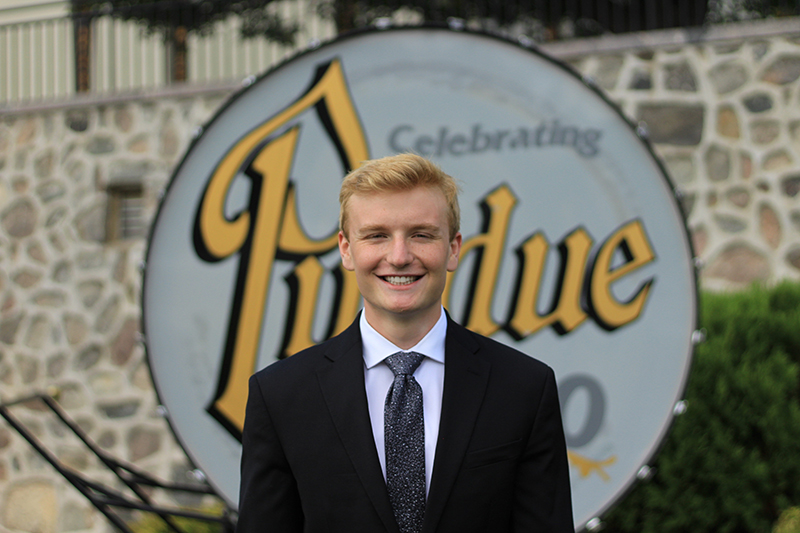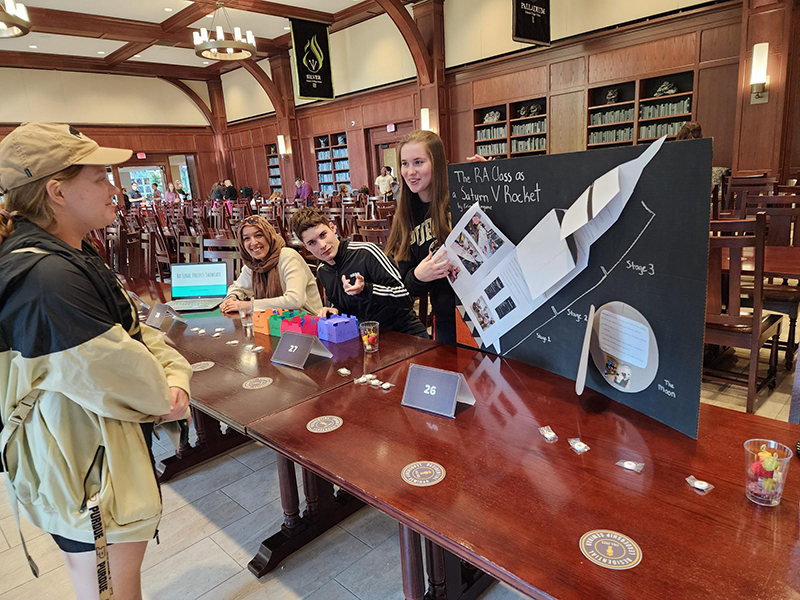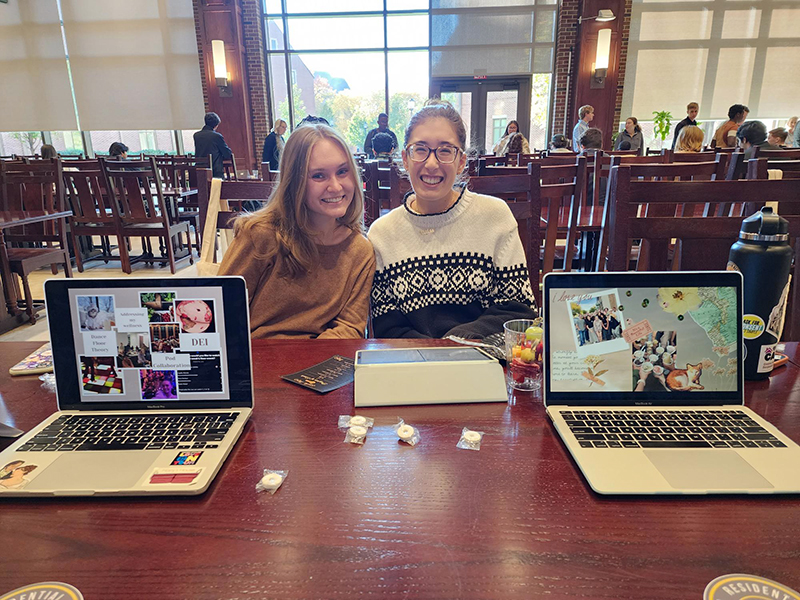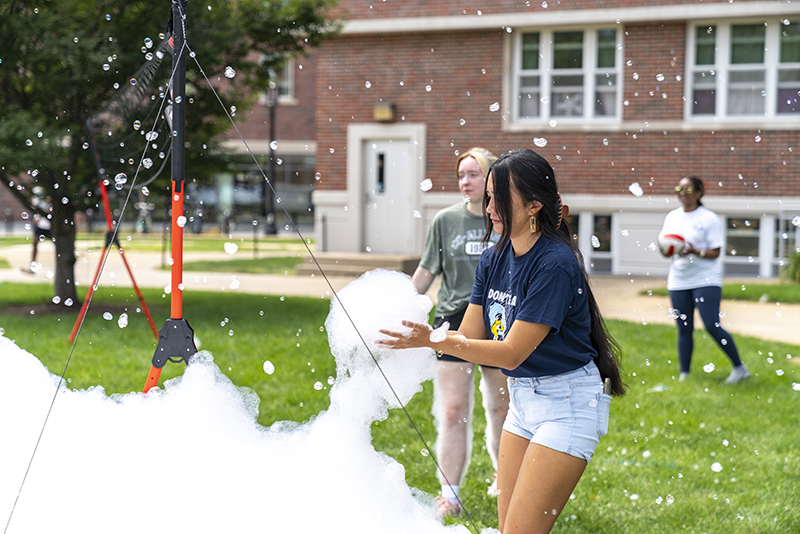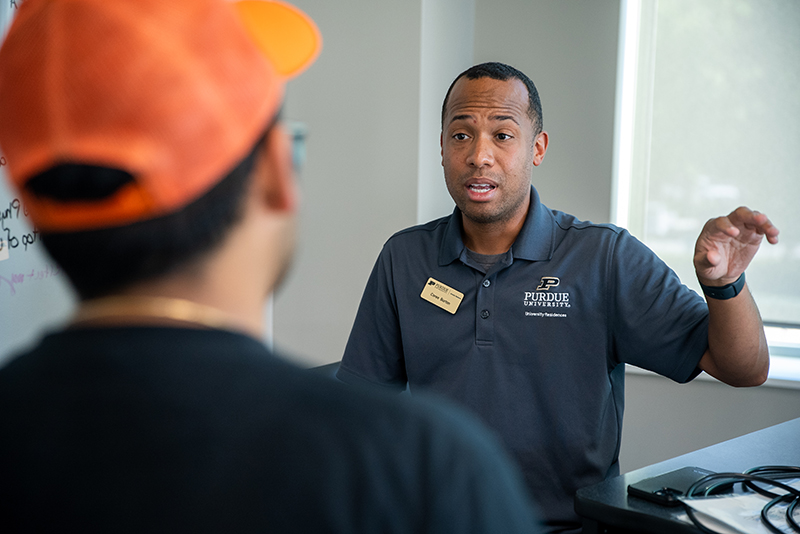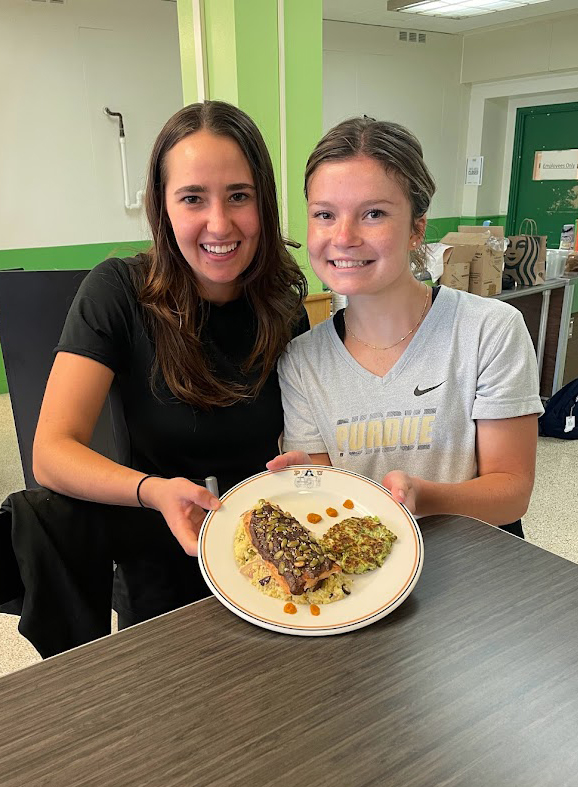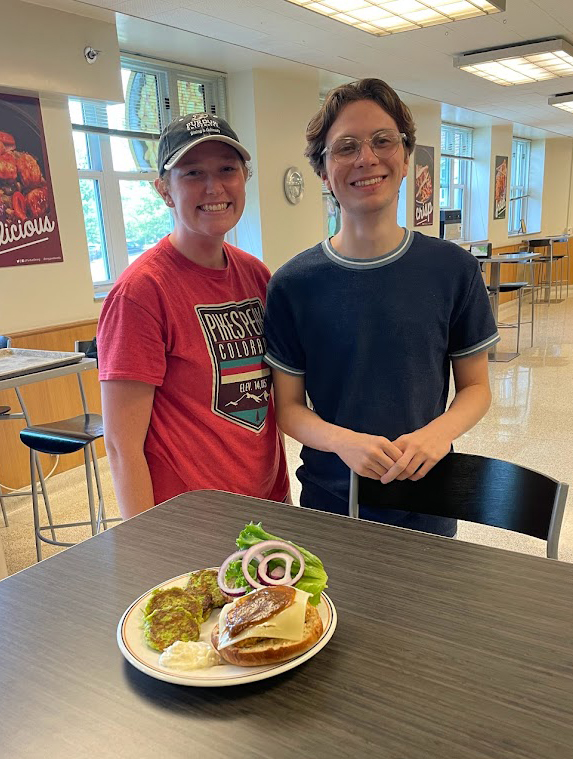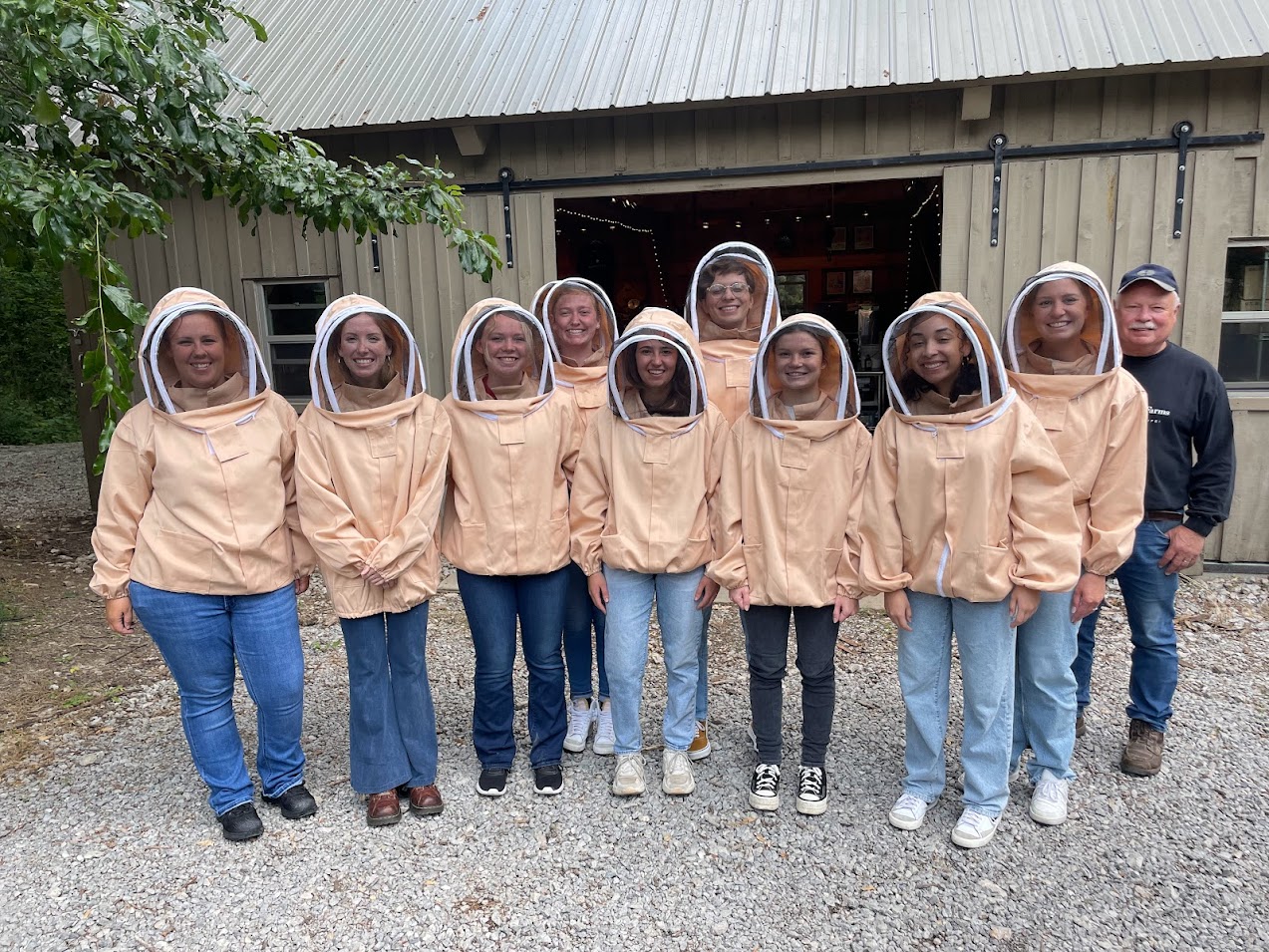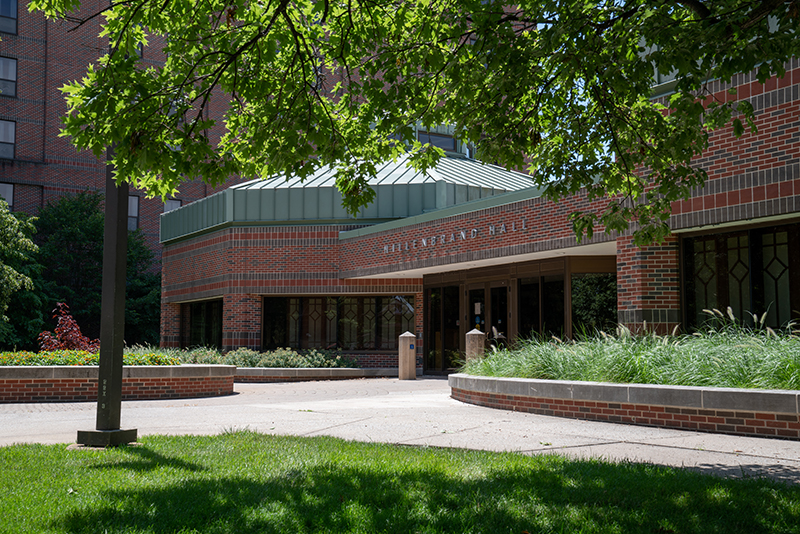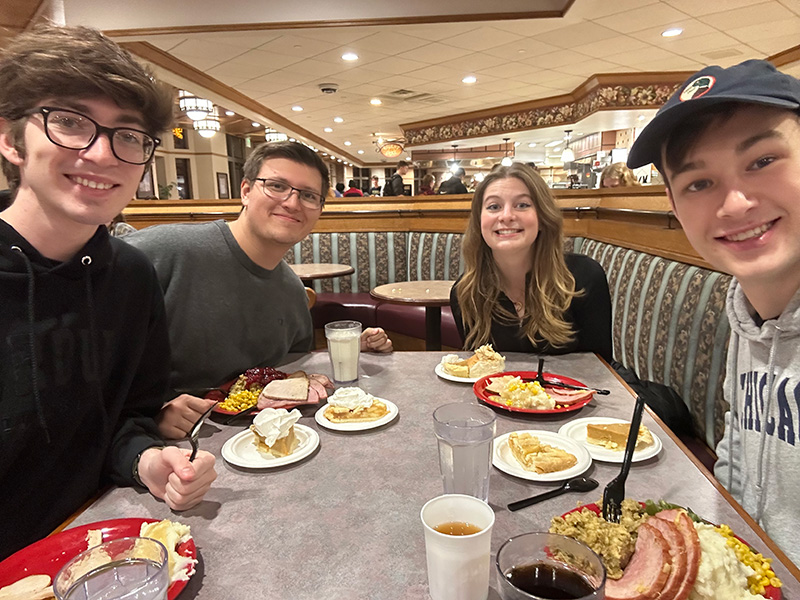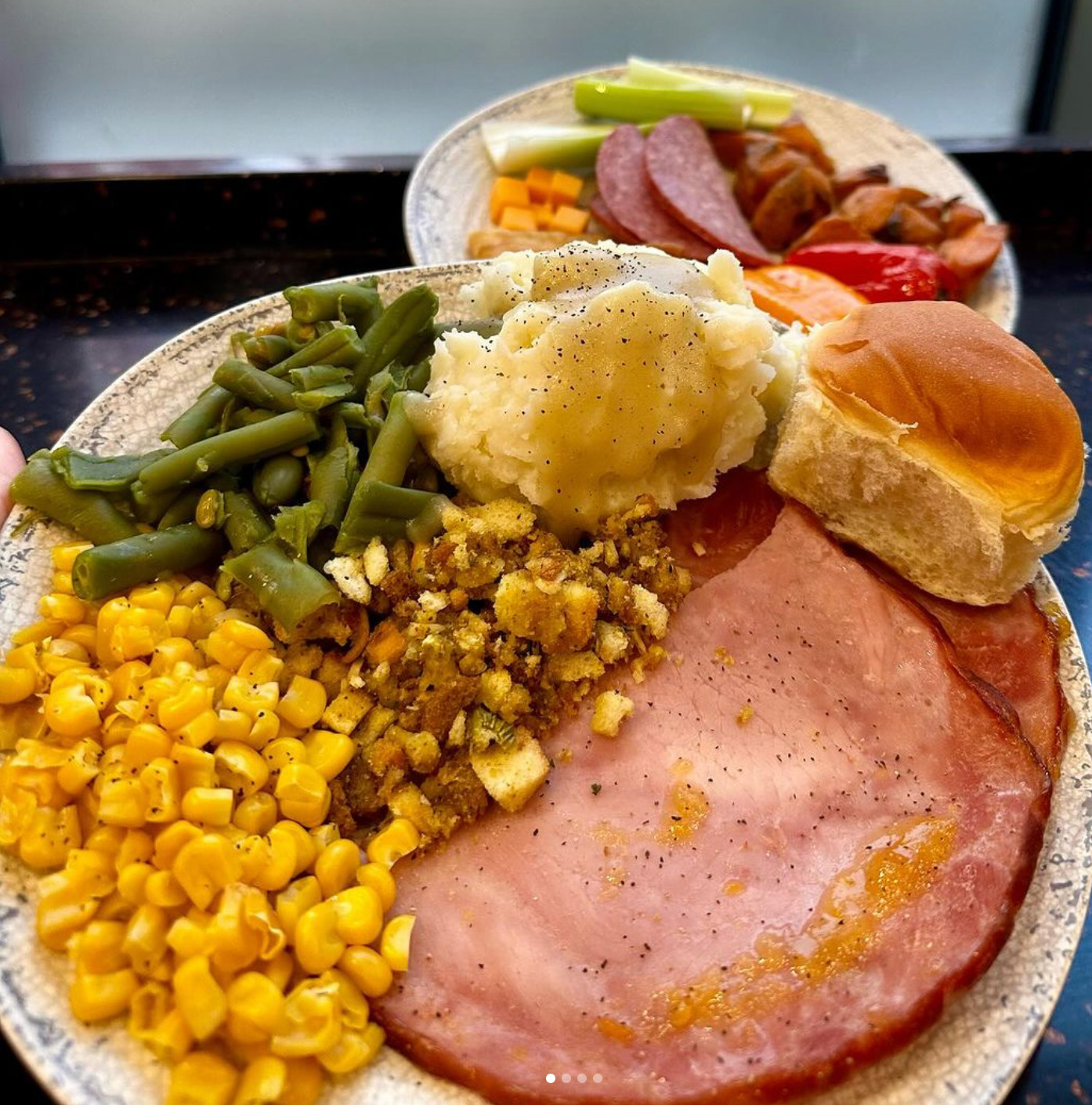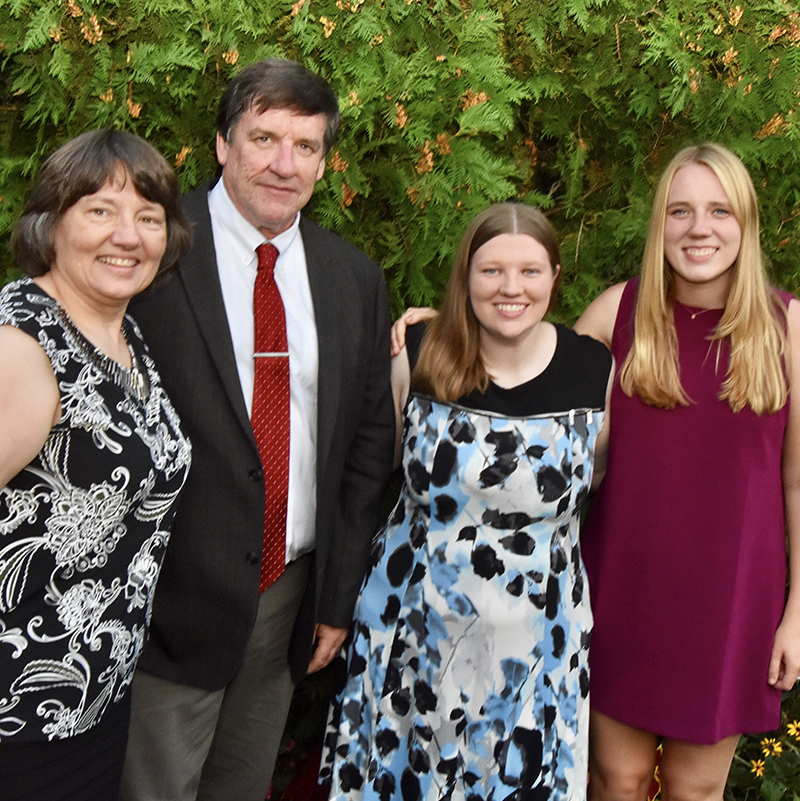
Matt Dempsey with his wife, Bobbie, and daughters, Mary Kate and Colleen.
In every Purdue alum are stories of experiences that shaped their time on campus and beyond. Studying an extra hour late into the night to make the grade. Celebrating Boilermaker victories and holidays with friends. Laughter, stress and everything in between.
These moments, however small, become something larger due to the time and place in which they took place and the lessons carried forth. Old haunts with friends become places for new memories with a spouse and children. Playing intramural sports turns into teaching a child how to play a game. Friends who live down the hallway become lifelong connections, and so forth.
This journey can be seen in the life of the late Matt Dempsey. At Purdue, Matt built connections that would play out in his relationships with friends, family and colleagues throughout the rest of his life. Matt passed away on September 6, 2022.
Matt was born in Milford, Massachusetts on October 1, 1958, and originally came to Purdue with dreams of becoming a veterinarian. He often joked that organic chemistry was the reason he dropped that dream and chose to pursue a degree in agricultural economics. Matt lived in Cary Quad and it was there he met Mark Owens, Jay Beyer and Russ Elms, who would form a tight bond during their time at Purdue. Owens notes that had it not been for living in Cary the four may have never met since they were all majoring in different disciplines and never had a class together.
During the late 1970s, each residence hall had its own cafeteria. Gathering for dinner in Cary daily became an important part of Matt’s friendships with Owens, Beyer and Elms – and often included practical jokes.
“It wasn’t abnormal for somebody to throw a glass to a person with hands full and say, ‘catch'” Beyer says. “The person was unable to keep the glass from crashing to the floor and was blamed for breaking the glass by the lunchroom staff. That innocent person had to sweep it up.”
Listening to records, hanging out in common areas, participating in intramural sports such as softball and basketball, snowball fights, smuggling food trays out of the cafeteria to sled down Slayter Hill, late-night dart games in Owens’ room on the weekends, staying at football games to the end of every home game regardless of the weather, and debates about sports teams also became part of the bond between Matt and his closest friends on campus. Many of these moments – such as an afternoon he and Owens spent hours people-watching and talking on the corner of Northwestern and Stadium – were simply born of opportunity. Of course, there were also unusual occurrences and memorable antics.
“One relatively quiet Friday night at Purdue, Jay Beyer and I were in my room listening to music and talking to the wee hours of the morning,” Owens recalls. “At some point, we had the bright idea to go see what Matt was doing. His door was locked (Matt was a smart man), so we decided to go outside and try the window. We were on the ground floor, so of course that made sense. Jay gave me a boost and, lo and behold, the window was not locked. As we poured ourselves into the room, trying mightily to keep quiet in the pitch-dark room, Matt’s voice could be heard clearly saying ‘If you guys leave now, I can get 3 more hours of sleep!’”
Upon graduating from Purdue in 1980, Matt worked briefly for Wabash Valley Nurseries in West Lafayette before returning to Massachusetts to work in the greenhouse and landscape business. He later became an assistant county supervisor with the USDA Farmer’s Home Administration in Greenfield for seven years and served in a county supervisor position for Farmer’s Home in Sutton for a year. He met his future wife, Bobbie Casey, at his sister’s wedding in 1983. He and Bobbie married after an eight-year, cross-country romance on September 7, 1991. They settled in Mount Prospect, Illinois and raised two children, Mary Kate and Colleen, while Matt enjoyed a 30-plus-year career at a credit union.
Colleen describes her father as the “ultimate family man,” who had a reverence for rural America and the people who lived in it. He often loaded the family into their van for cross-country trips around the U.S. ranging from Cape Cod to California. Later, the family would return to Purdue to attend athletic events and visit old haunts.
“You could tell how much those days meant to him and how much he loved those friends and that time of his life,” Colleen says. “My sister and I toured Purdue. When we passed Cary Quad, we grabbed the door and followed them inside. Dad took us to see his door in Cary Quad with his name plate on it.”
Trips such as these and drives to the University of Illinois, where Colleen attended college, were an important part of their bond.
“Trips like that were a very cool way of getting to know who my Dad was before he was my Dad,” Colleen says. “That’s something I now really appreciate. As children, we don’t really see our parents for who they fully are until we’re a lot older. In that way, it was a really cool moment of learning more about my Dad as a person, which is super interesting and paints a picture of who he really was.”
A love for sports, particularly Purdue sports and his beloved Boston teams, the outdoors and classic rock were also an important part of Matt’s bond with family and friends. He would often find peace in nature, going outdoors to enjoy evenings with the family and their dog, and sharing his love of photography via Instagram and submitting photos to the local newspaper. Matt also had a way of making traditions special, especially around holidays, with Christmas scavenger hunts for Colleen and Mary Kate to find gifts and French toast breakfasts on Valentine’s Day. Anyone Matt came into contact with could sense his love for family.
“I always knew family was important to Matt,” Owens says. “When I went to his services, it hit me full in the face how important it was. He was one of those people who could talk to anyone about anything. I think that is why he had so many friends who respected him and enjoyed his company.”
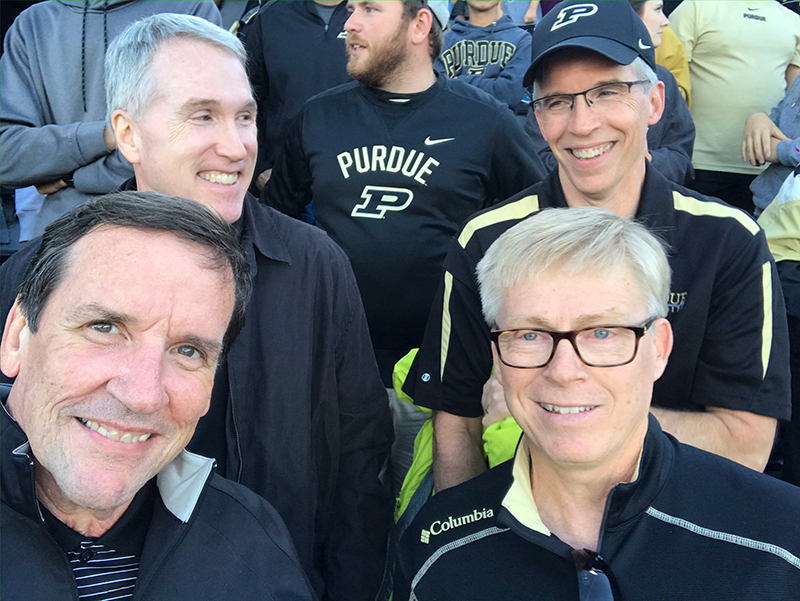
Dempsey and friends at a Purdue football game.
Matt also kept in touch with his friends from Purdue throughout the years, hosting individuals for golf outings, meeting up in various cities and through an ongoing greeting card gag with Owens where they would send each other emotional greeting cards containing secret messages. Purdue was always a part of their conversations and Matt created the idea for him, Elms, Owens and Beyer to reunite at Purdue for a football game and weekend on campus. While Owens couldn’t make the first gathering in 2019 due to a cross-country move, the four were able to reunite during fall 2021.
“Memories are best shared and it was very good to reminisce, make the same walks and rekindle some of the same debates,” Russ Elms says. “During one of our annual football game visits to Purdue, we again sat in the common area of first floor Cary Southeast and talked about old times, good times and life in general. I don’t know that we solved any of the world’s problems, but the discussions did make those problems seem to diminish in importance.”
Elms, Owens and Beyer plan to attend another Purdue game this fall in memory of their friend.
Colleen celebrated her father’s connection to Purdue by writing a letter about Matt’s life to the current residents of Cary 139. Her idea was to bring to life a person who once slept, ate, studied, dreamed and found lifelong friendship and lessons in the same place.
“I really wanted to talk about him, share his love of Purdue and legacy with people who are in the exact same room that he was in now to make him more than just a name on the door,” Colleen says. “I think to know that somebody who slept in the same spot as you every night, what their life was like and what the people who loved them are mourning would be really special. I just wanted to reach out and give them insight into who my Dad was, so he’s more than just a name on their door.”
When reflecting on his friendship with Matt, Owens also says that connection is special.
“When we dropped our daughter off at Purdue for her freshman year, I remember the last thing I told her was to enjoy the ride,” Owens says. “You’re going to have ups and downs, but enjoy it along the way. That’s what Matt, all the guys and I did. We were all young adults and we knew what we had to do, but that didn’t mean we couldn’t enjoy the ride – and we did.”
University Residences thanks the Dempsey family and their friends for sharing their memories of Matt and the lifetime of connections his time at Purdue influenced.
Written by: Matthew Vader, writer, Student Life Marketing
